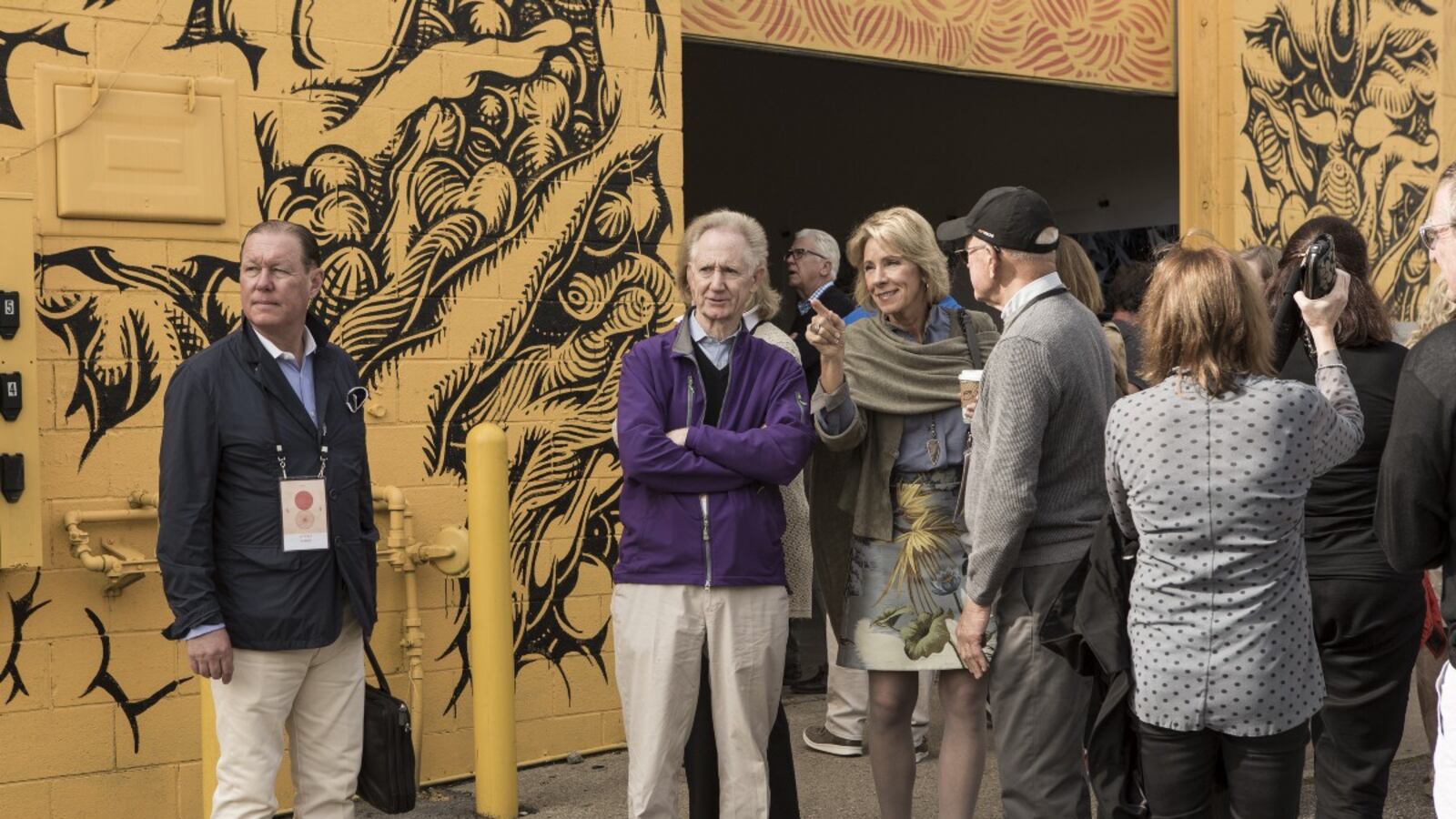There’s a lot still to untangle about the implications of Donald Trump’s decision to nominate Betsy Devos as his education secretary, announced Wednesday. One possibility to keep an eye on: DeVos could become the first U.S. education secretary to meaningfully depart from a bipartisan reform coalition that every presidential administration has embraced since Ronald Reagan.
That coalition, which arguably launched with Reagan’s “A Nation at Risk” report and culminated in the Obama administration’s Race to the Top project, has been united in three key beliefs. First, that schools need to be significantly improved; second, that the government, including the federal government, should play a strong role in spurring that improvement; and, finally, that government should take a lesson from market-based ideas as it enacts those changes — thus the “reform” moniker.
DeVos is on board with those ideas in that she agrees about the need to change the education status quo, as she announced today on her website. But she’s at odds in that, as an ardent supporter of private school vouchers, she’s strongly skeptical of the role of government in spurring change.
Whereas members of the reform coalition have promoted ideas that essentially imitate market approaches inside of government, DeVos’s approach has been to create markets outright, erasing the government from the equation altogether. She favors doing that in the style advocated by Milton Friedman, the economist who promoted letting families control public taxpayer dollars for schools through private school vouchers.
DeVos has also been critical of reforms that attempt to imitate markets inside of government. She’s criticized charter schools, publicly funded and government-regulated schools, as well as the Common Core standards, which aim to set a bar against which all students, schools, and teachers can be measured — leading to market-style consequences for poor performance.
If DeVos is appointed and holds strong to her positions, she could usher in a new phase of the education wars as we know them. To date, the two main camps that have dominated the national education debate have been the reformers and those who oppose market-style reforms from the left — including, in recent years, teachers unions, who disagree about what government should do, but still strongly support a role for government and government regulation.
Now those two groups could find themselves focusing more on what they agree about — and acting more like allies. Many reformers and reform opponents, for instance, oppose vouchers or only support vouchers with strong regulations, like a requirement that they only serve poor children. And both groups support a government-led vision for public education.
Exactly how that plays out will depend on how DeVos adapts her activist stance to a government position. So far, she’s keeping quiet on the specifics. In a statement published on her website today, DeVos wrote that “out of respect for the United States Senate, it is most appropriate for me to defer expounding on specifics until they begin their confirmation process.”


